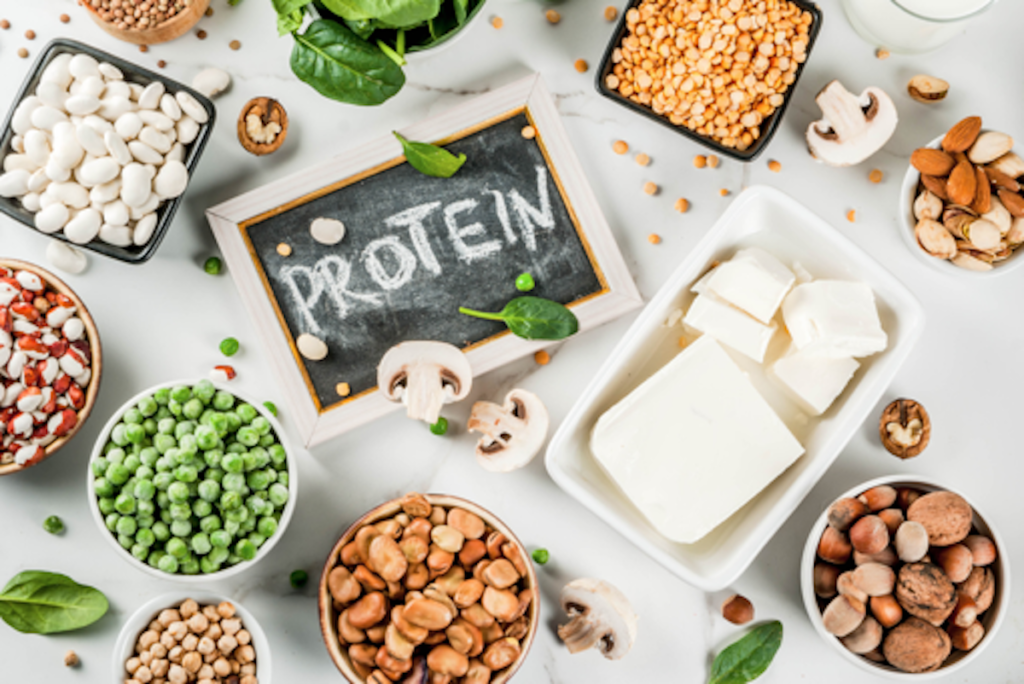If you think that being a vegan or vegetarian might land you in a protein deficient state, you are probably wrong. You just need to plan your meals smartly and eat the right foods to ensure that you are getting all the nutrients including protein, on a daily basis.
There are some plant-based foods that are richer in protein than others. Protein-rich diets are the best bet for building muscle strength, preventing muscle loss, and enhancing satiety. Find out some really good plant-based foods that you can consume to ensure that you are getting your daily dose of protein and other nutrients.
Best plant-based foods for vegans
1. Tofu, Tempeh, & Edamame
Sourced from soybeans, these 3 plant foods are great sources of protein. Soybeans provide you all essential amino acids. Edamame is crude soybeans with a slightly sweet and grassy taste. You can add these to your soups or salads after steaming or boiling. Tofu or soy paneer doesn’t have its own flavor as such and can be added to other vegetables or cooked with vegetable gravies. Tempeh has a nutty flavor and can be used in multiple recipes. All these are rich in iron, calcium, and protein with edamame being rich in folate, fiber, & vitamin K and tempeh being packed with vitamin Bs, magnesium, phosphorus, and probiotics.
2. Lentils
Lentils are known for being rich in protein. One cooked cup of lentils can offer you as much as 18g of protein. These can be used in multiple recipes. Lentils are also rich in fiber and help you get around 50% of your recommended daily intake of fiber. They are packed with slow-digesting carbs that keep you satiated and energized. Fiber helps in boosting digestion and enhancing satiety. Lentils can also help in reducing the risk of developing diabetes, obesity, and heart diseases. These are also rich in iron, folate, antioxidants, and manganese.
3. Beans
Beans such as kidney beans, black beans, pinto beans, etc. are excellent sources of protein. Chickpeas are legumes that are protein-rich. Beans and chickpeas offer around 15g of protein each per cooked cup. These are also packed with complex carbs, iron, fiber, manganese, phosphorus, folate, and potassium. There are multiple studies that suggest that beans and legumes can help in reducing cholesterol, regulate blood sugar, and blood pressure. These are also helpful in reducing belly fat.
4. Hempseed
Hempseed is a good source of protein. 28g of hempseed can offer approximately 10g of protein that gets digested easily. It offers 50% more protein than flaxseeds and chia seeds. These tiny powerhouses are also a good source of iron, zinc, selenium, magnesium, and calcium. You also get a good amount of omega-3 and omega-6 fatty acids. You can spread these on your bowl of oatmeal, fruits, or add them to smoothies.
5. Quinoa and Amarnath
These are gluten-free grains that are also known as pseudocereals. Regarded as the complete protein courses, both of these offer 8-9f of protein per cooked cup. Apart from protein, both of these are also a good source of fiber, phosphorus, iron, magnesium, manganese, and complex carbs.
6. Soy milk
While vegans cannot consume dairy products such as milk, soy milk is a good source of protein for them. This is dairy-free milk made from soybeans. It is enriched with various vitamins and minerals and can be used as a good alternative for cow’s milk. You get around 7g protein per cup of soy milk along with vitamin B12, D, and calcium. Choose the unsweetened ones from the market fortified with vitamins and minerals.
7. Nuts and nut butter
Nuts, nut butter, and even seeds are known as good protein sources, especially for vegans and vegetarians. You can easily get around 5-7g of protein with 28g-serving. It depends on the type of seeds and nuts you are consuming. Both nuts and seeds offer fiber, healthy fats, protein, vitamin Bs, vitamin E, and minerals such as iron, selenium, magnesium, phosphorus, and calcium. These are also rich in antioxidants. Nut butter such as peanut butter and almond butter are good sources of protein and other micronutrients. Choose the ones that contain no added sugar, hydrogenated oils, or other preservatives.
Some other foods that you can try as a vegan or vegetarian are oats, nutritional yeast, green peas, vegetables such as broccoli, spirulina, and fruits and vegetables that are rich in protein. You can add plant-based supplements to your diet such as bGREEN protein that is a plant-based protein powder made with a blend of pea and brown rice protein. It offers 25g of pure plant protein that helps you meet your daily protein needs and also aids muscle building and recovery.
bGREEN offers a wide range of vegan supplements including vegan protein powder. Make sure that you consume a balanced diet to get all the nutrients and live an active and fit lifestyle.
